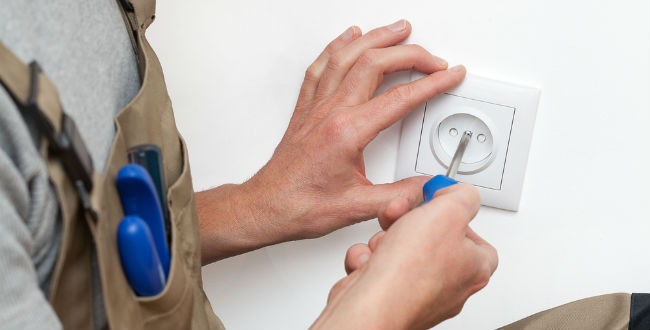Electrical Safety - September 2014
Posted on:

According to registered charity ‘Electrical Safety First’, landlords are exposing themselves to significant financial risks, from fines and invalidated insurance, through not acting on their electrical safety obligations.
The charity claims that landlords are also putting millions of UK private tenants at risk of serious accident or fire.
By law, Landlords are required to ensure that:
- the electrical installation in a rented property is safe when tenants move in and maintained in a safe condition throughout its duration.
- a House in Multiple Occupation (HMO) has a periodic inspection carried out on the property every five years. If your property is not an HMO, you are not legally obliged to do this. However, we recommend that a registered electrician carries out a periodic inspection and test on your rental properties at least every five years.
- any appliance provided is safe and has at least the CE marking (which is the manufacturer’s claim that it meets all the requirements of European law).
Every electrical installation deteriorates with use and age. It’s important that a landlord ensures that their tenants are not put at any risk, by ensuring that the electrical installation continues to be in a safe and serviceable condition. Connections can work loose, people can be heavy-handed whilst plugging in items of equipment and building and maintenance work can have a damaging effect on the wiring.
A landlord should carry out regular basic visual safety checks to ensure that the electrical installation has none of the following hazards:
- Broken sockets or light switches
- Signs of scorching around sockets due to overloading
- Overheating of electrical equipment
- Damaged cables to portable equipment or trailing cables / flexes
In addition to basic visual checks, Turner Scott would recommend that an Electrical Installation Condition Report (ECIR) is carried out at regular intervals by a registered electrician. An ECIR inspection should:
- reveal if any of the electrical circuits or equipment are overloaded
- find any potential fire hazard in the installation
- highlight any lack of earthing or bonding
- identify any departures from the National BS 7671 standard
The Electrical Safety Council recommends that in rented accommodation, an ECIR is carried out at least every 5 years or on the change of tenancy. Turner Scott also recommends this course of action.
Where a change of tenancy occurs after a short period (e.g. less than 6 months) of letting, a full ECIR may not always be required. However, it is imperative that the electrics are visually checked for signs of scorching, broken and missing sockets / switches and a manual test of any Residual Current Device (RCD). RCDs are a safety device designed to disconnect the circuit if there is a leakage of electrical current.If the landlord preferred for an electrician to do this, this would be arranged.
It is the landlord’s responsibility to ensure that the electrics and any electrical equipment in the rented property are ‘safe’ so that there is no risk of death or personal injury to humans or pets, or risk of damage to the property.
Back